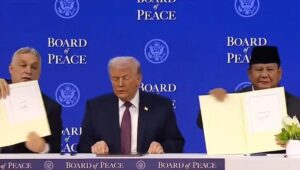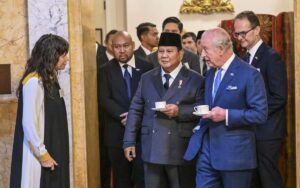President Jokowi calls on Indonesian migrant workers

Jakarta, The Gulf Observer: President Joko Widodo (Jokowi) has called on Indonesian migrant workers, departing for employment in South Korea, to exercise greater prudence in spending their income and steer clear of over-consumptive behaviour.
The president drew attention to the fact that Indonesian migrant workers in South Korea would be paid more than a cabinet minister’s basic salary.
“The basic salary of a minister is Rp19 million, if you are not believing this, just ask Ms Ida (Fauziyah), the manpower minister, whose basic salary is Rp19 million. You all will receive a salary of Rp22 million,” Jokowi stated while sending off Indonesian migrant workers dispatched to South Korea through the government-to-government (G to G) scheme here, Monday.
He also urged the migrant workers to save a part of their income and refrain from over-consumptive behaviour.
“Just because you will be in South Korea later, you must not (use your salary only to) buy good phones. Be careful of over-consumptive behaviour as well as (the habit of) buying expensive and branded clothes. Save your money, save your money,” he underlined.
The president added that incomes received by Indonesian migrant workers while working overseas must not be spent only on unproductive consumption with no returns.
Meanwhile, Indonesian Migrant Workers Protection Agency (BP2MI) Head Benny Rhamdani said that all migrant workers sent to South Korea had the same goal to improve the livelihood of their families after returning home.
Echoing the president’s statement, Rhamdani also called on the migrant workers to prudently spend their income and keep away from over-consumption so as not to return home penniless.
Earlier, the BP2MI head appealed to Indonesian migrant workers to pursue overseas employment only through legal means, as illegal placement made them vulnerable to various issues, including violence and salary being withheld.
“They are vulnerable to physical and sexual violence and withheld wage payment because they never sign an employment contract,” the official noted on Wednesday (October 5).
Failure to sign an employment contract also makes Indonesian migrant workers vulnerable to human trafficking, work exploitation, and unilateral layoff, he pointed out.


